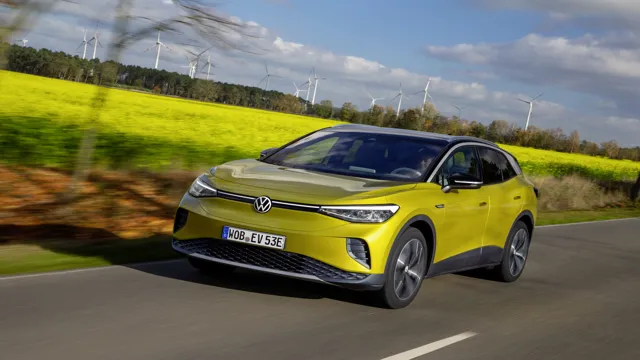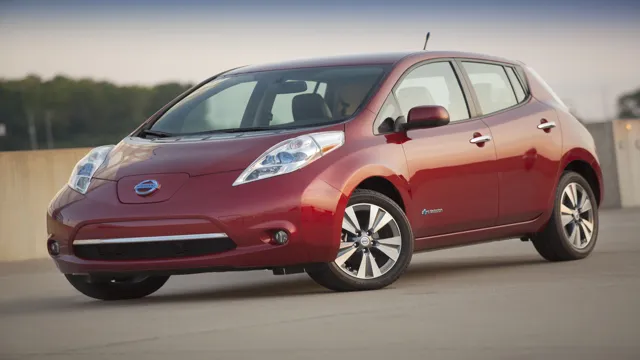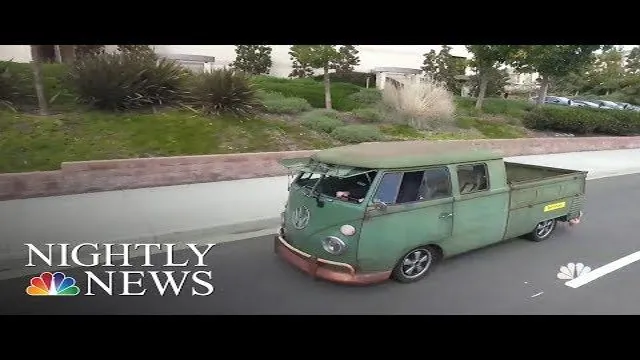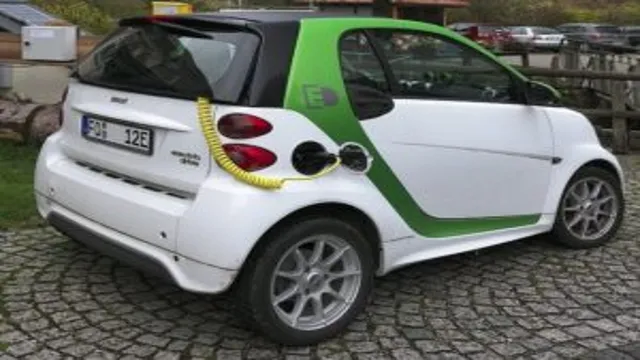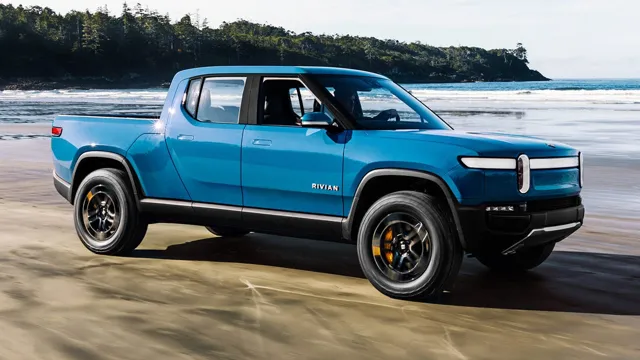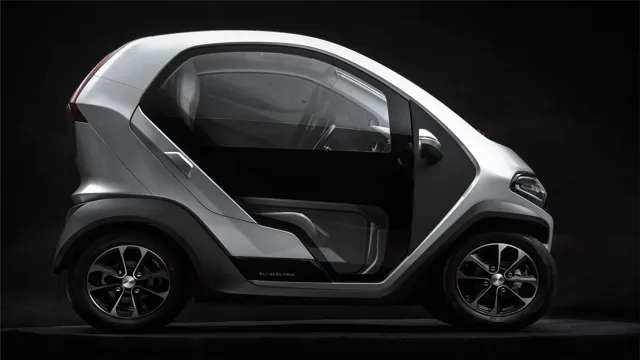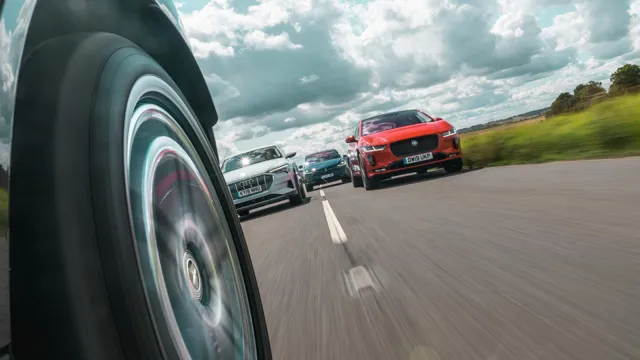Revolutionizing the Road Ahead: Latest VW Electric Cars News
Get ready, car enthusiasts! Volkswagen has some exciting plans for electrification. As the world becomes increasingly aware of the impact of climate change, VW is stepping up to the plate to make significant changes to their vehicles. With their sights set on an all-electric future, the German automaker is poised to shake up the automotive industry.
So what does this mean for consumers? Let’s take a closer look at what VW has in store for us.
New Models and Partnerships
VW announced new models and partnerships as part of their commitment towards electric cars. The company unveiled the ID.4 electric SUV, which will be available in the US market in early 202
Additionally, the carmaker partnered with Electrify America to offer a free charging plan to ID.4 customers. VW’s executive VP of sales and marketing said that their aim is to make EV ownership “more accessible and convenient.
” The company also partnered with Ford to co-develop electric and autonomous vehicles. This partnership aims to reduce development costs and accelerate innovation in the industry. With all these efforts, VW is making significant strides towards a greener future and a more sustainable transportation system.
The news of these new models and partnerships is great news not just for the electric car industry but for the environment as well.
Collaboration with Ford
Ford has been collaborating with different companies to develop new models and establish partnerships. The American automaker has been working with Rivian, an electric vehicle startup, and Volkswagen to create sustainable and eco-friendly cars. Recently, Ford announced a partnership with Google to revolutionize the in-car experience and incorporate the tech giant’s voice assistant into their vehicles.
The collaboration will also enhance vehicle connectivity with other Google devices and services. This is a great move for Ford as it will help them keep up with their competitors and tap into new markets. The partnership with Google also shows Ford’s commitment to innovation and keeping up with the latest trends in technology.
It’s exciting to see what new models and features Ford has in store for the future, especially as they continue to expand their partnerships with other companies.
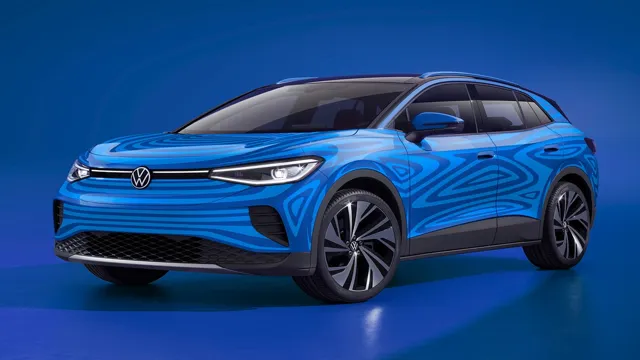
ID.4 EV Launch in the US
The ID.4 EV has finally been launched in the US, and it’s not just one model, but a whole lineup of electric vehicles that are set to make a huge impact on the market. Volkswagen has been working relentlessly on building new partnerships to support the launch of these electric cars, making sure that they’re as accessible as possible to consumers across the country.
With a variety of models to choose from, including the Pro and the First Edition, drivers can now select the ideal ID.4 model that suits their specific needs and preferences. This latest release marks a significant era in Volkswagen’s journey towards achieving a more sustainable future, and the reception so far has been overwhelmingly positive.
The ID.4 EV was designed with the needs of drivers in mind – comfort, convenience, and of course, eco-friendliness. With this latest launch, Volkswagen is placing sustainability at the forefront and offering an unparalleled experience for drivers who want to reduce their carbon footprint while still enjoying a reliable and aesthetically pleasing vehicle.
Overall, the ID.4 EV is a significant milestone in Volkswagen’s ongoing efforts to create a more sustainable future for all.
Infrastructure and Investments
VW electric cars news is heating up lately as the company continues to invest heavily in electric vehicles and infrastructure. In fact, Volkswagen plans to invest $14 billion into electric vehicle infrastructure across the globe by 2025, which will include building more than 18,000 charging stations in Europe alone. This investment is part of the company’s broader efforts to electrify its entire fleet, with plans to produce 70 new electric models by 202
And it’s not just infrastructure that Volkswagen is investing in – the company is also pouring money into battery technology, with plans to build six battery factories by 2030. With all of these investments, it’s clear that VW is serious about its commitment to electric cars and sustainability. It will be exciting to see how the company’s efforts pay off in the coming years and how these investments ultimately impact the future of electric transportation.
Expanding Charging Network
As the electric vehicle market continues to grow, it’s become increasingly important to expand the charging network. Fortunately, there have been significant investments in infrastructure to support the increase in EVs on the road. Charging stations are being installed not only in densely populated areas but also in remote locations to make long-distance travel more accessible.
These charging stations are being built with high-speed chargers, allowing EV owners to charge their cars quickly and efficiently. This infrastructure investment is essential in transitioning from gas-powered to electric-powered vehicles. With the continued growth of the EV market, we can expect to see even more investments in the future.
The keyword in this piece is “charging network.”
Battery Production Plans
Tesla has ambitious plans to produce its own batteries, known as 4680 cells, and expand its battery production infrastructure. The company aims to achieve a production capacity of 100 GWh per year at its Nevada site and more than triple that when it opens new factories in Texas and Berlin. To achieve this goal, Tesla will need to invest heavily in its battery technology and significantly increase its workforce.
The company’s shift towards in-house battery production is aimed at reducing its dependency on third-party suppliers and driving down battery production costs. By producing its own batteries, Tesla can also increase its control over the entire supply chain, from raw materials to final product. This approach is expected to provide Tesla with a competitive advantage, enabling the company to produce electric cars at a lower cost, and ultimately make them more affordable for the mass market.
Investment in Autonomous Driving Tech
Investment in autonomous driving technology is rapidly increasing, as companies race to be at the forefront of this innovative field. Infrastructure and investments are crucial factors in the development of autonomous vehicles. Governments around the world are investing in public infrastructure that supports self-driving cars, such as smart roads and traffic management systems.
This investment will improve the safety and efficiency of autonomous vehicles on the road. Similarly, companies are investing heavily in research and development, acquiring startups and collaborating with established players to create cutting-edge autonomous vehicle technology. Moreover, investment in infrastructure and technology can bring a lot of benefits to society in terms of traffic management, safety, and emissions reduction.
As this technology evolves, it has the potential to transform transportation and mobility as we know it. However, there are still many challenges and risks involved, such as regulatory hurdles, cybersecurity concerns, and ethical considerations. Despite these challenges, the investment in autonomous driving technology continues to grow, and the future of transportation looks increasingly exciting.
Environmental Impact and Awards
VW has been making headlines with their line of electric cars, and for good reason. These vehicles are not only eco-friendly, but they also significantly reduce carbon emissions. In fact, VW’s impressive environmental impact was recently recognized when they were awarded the “Green Car of the Year” at the 2021 New York Auto Show.
This prestigious award acknowledges the efforts made by the company to reduce the carbon footprint of their vehicles and promote sustainable transportation. VW’s commitment to environmental sustainability is evident in their extensive investment in electric car technology and their commitment to reducing greenhouse gas emissions. With their growing range of electric cars, including the new ID.
4 SUV, VW is leading the pack in environmentally conscious automobile manufacturing. This makes VW electric cars news that we can all celebrate as we strive towards a cleaner and greener future.
Sustainability Goals and Initiatives
When it comes to sustainability and reducing our environmental impact, our company takes its responsibilities seriously. We have set various goals and initiatives that drive us towards becoming a more responsible and eco-friendly company. Our environmental impact is measured and reported, and we are always looking for ways to reduce our carbon footprint.
We have made significant investments in green technologies and practices such as renewable energy sources and recycling. Our efforts have been recognized through various awards and certifications, including LEED certification and the Green Seal Certification. We are proud to continue working towards a better, cleaner, and brighter future for ourselves and future generations.
Our commitment to sustainability is not only a moral obligation but also an economic imperative as we work towards a more sustainable and profitable business model.
Car of the Year Award for ID.3 EV
The Volkswagen ID.3 electric vehicle won the coveted “Car of the Year” award for 2021, marking a significant step for electric cars as they gain momentum in the automotive industry. The award recognizes the ID.
3’s innovative design, performance, and environmental impact, all of which are critical factors that will determine the future of the automotive industry. The ID.3’s eco-friendly features, including its battery-powered engine, zero emissions, and efficient range, make it a top choice for environmentally conscious drivers.
The award highlights the growing awareness and demand for sustainable transportation options and the need for automakers to invest in clean energy solutions. Overall, the ID.3’s recognition as Car of the Year underscores the shift towards cleaner, more eco-friendly vehicles and the need for proactive measures to mitigate the impact of transportation on the environment.
Conclusion
It seems that Volkswagen is finally hitting the accelerator on electric vehicles, with plans to have 70 electric models on the market by 2030. This is welcome news for both the environment and for fans of the iconic Volkswagen brand. As the saying goes, “the future is electric,” and VW is certainly driving us in that direction.
So let’s all buckle up and enjoy the ride!”
FAQs
When is Volkswagen planning to release its new electric car models?
Volkswagen is planning to release its new electric car models in 2020.
What is the driving range of Volkswagen’s electric cars?
Volkswagen’s electric cars are expected to have a driving range of over 250 miles on a single charge.
How long does it take to fully charge a Volkswagen electric car?
It takes approximately 4 hours to fully charge a Volkswagen electric car using a 240-volt power source.
Is Volkswagen planning to offer incentives or discounts on its electric cars?
Yes, Volkswagen is offering incentives such as tax credits and dealer discounts on its electric cars to encourage more customers to switch to electric vehicles.
What is Volkswagen’s long-term plan for its electric car lineup?
Volkswagen plans to have over 20 fully electric models in its lineup by 2025, with a goal of becoming carbon neutral by 2050.

